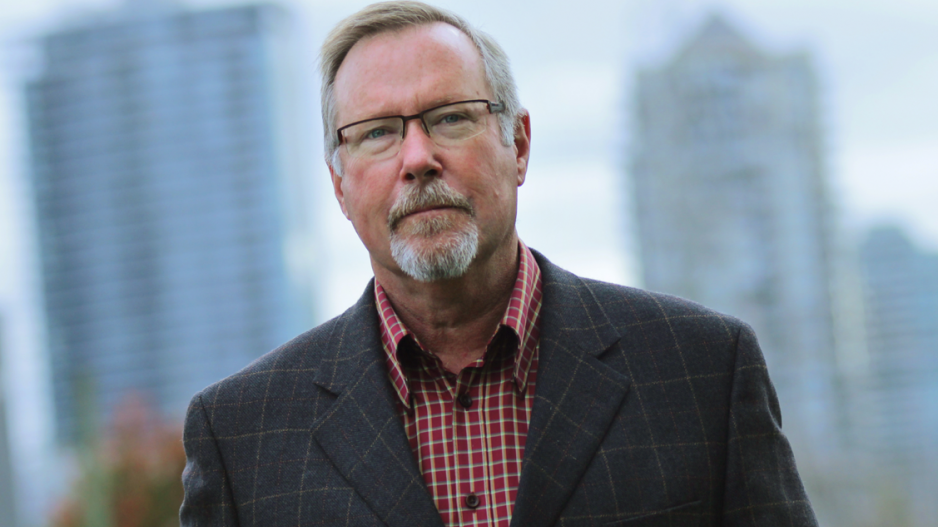B.C.'s construction workers are busy with residential projects in the Lower Mainland and industrial projects in the southern Interior. While liquefied natural gas hasn’t played out as the province once expected, Site C is gathering steam with more than 1,350 workers on site.
“The industry is quite busy right now,” said Bob Cooke, recently elected chairman of the BC Construction Association (BCCA) for a one-year term. “The north’s very busy – maybe not as busy as they expected it to be because of the decline in oil and the [liquefied natural gas] not moving forward – but in general I think B.C.’s in a very good place.”
The robust state of the industry masks the challenges facing the association representing builders in the province’s non-residential sector.
With four constituent associations – the Vancouver Regional Construction Association (VRCA), the Vancouver Island Construction Association, the Southern Interior Construction Association and the Northern Regional Construction Association – the BCCA provides a unified voice to government and leadership on key industry issues.
But if construction is a young man’s work, guidance increasingly falls to people like Cooke – who, at 62, is an experienced and knowledgeable entrepreneur.
“There are a lot of issues facing the board right now. We’re in a change-management situation,” he said. “One of the challenges I’m going to be facing over the next year is a changing of the guard at the leadership level of the organization.”
The pending retirement of BCCA president Manley McLachlan means a quest for someone to guide the association into a position that’s increasingly service-oriented.
“We’re trying to modernize, as groups always are, and transitioning away from a membership-based to a value-provider organization,” Cooke said.
Technology has changed the industry significantly in recent years. BCCA launched an electronic plan room, BidCentral, in 1999. Today, virtually every aspect of a project can be tracked and managed online: from design, construction and change orders through to completion and final inspection.
This facilitates greater productivity and innovation, says Cooke, who sees the industry becoming an active instigator of new changes.
“One of the thoughts we have now is to transition ourselves from bricks-and-mortar office buildings to innovation hubs where our associations are components of an innovation hub centre,” he said.
Separate from centres of excellence, innovation hubs would incubate new technologies for the construction sector rather than just train people to excel with existing tools.
This idea dovetails with the industry’s embrace of lean construction practices – protocols that take a client-oriented approach when it comes to managing and improving construction processes.
“We’ve got some people within the BCCA that are interested in that. We’re looking at how we can play a role to foster that in the industry,” said Cooke.
The challenge for Cooke and his fellow board members is keeping regional interests in alignment as change occurs.
“Provincially, we try to come together around common programs that we share, but that hasn’t been the case in the past,” he said. “Communication is where it all begins, and where it comes back to as well, to keep things moving forward positively.”
With five years’ experience on the VRCA board and four years with the BCCA (he’s also the provincial representative to the Canadian Construction Association), he’s picked up some tips from veterans like Ross McLean from Houle Electric Ltd. and Anibal Valente, who chaired the BCCA from 2009 to 2011.
“I saw them struggle with getting consensus,” he said. “[Valente] was a good role model on how to behave, how to build consensus.”
This helped hone what he considers his own native way of doing things, acquired growing up in Nova Scotia.
“Maritimers tend to be a little more work-together, hail-fellow-well-met. So I think it’s a natural part of my character,” said Cooke.
“You should be working with your partners and business in a positive way, and looking for win-win outcomes, not win-lose outcomes.”
Born in Halifax in 1954, Cooke attended Dartmouth Regional Vocational School and then Southern Alberta Institute of Technology in Calgary, graduating as an engineering technologist in 1976.
He initially worked for consulting engineering firms until shifting to contracting in 1980. He excelled as an estimator and eventually began managing projects.
During the economic turbulence of the period, he married and relocated to Halifax, returning to Vancouver in 1989 after a brief stay in Ontario. TEC Mechnical, the firm he had worked for in Calgary, was opening an office in Vancouver and wanted him to lead the charge.
Fifteen years later, he launched Division 15 Mechnical Ltd., which now employs 75 people. Its portfolio includes Creekside Community Recreation Centre in Vancouver, British Columbia Institute of Technology’s aerospace campus in Richmond and district energy systems at the University of British Columbia.
Having stepped back from day-to-day management of Division 15, Cooke has time to volunteer with industry associations. Cooke’s oldest son of three is a project co-ordinator at Division 15, but Cooke remains CEO.
Cooke likes immersive activities that take his mind off the challenges of work: whether reading Vanity Fair or fiction, skiing or taking his Mikelson Sportfisher up the coast, exploring the inlets and their history.
“That’s one of the wonderful things about boating – once you untie the lines and you leave the dock, you have to focus on … running the boat and being on the boat and not running into rocks,” he said. “I find skiing’s the same thing – you can’t be thinking about work and all that stuff because you’ve got to get down the hill.” •




